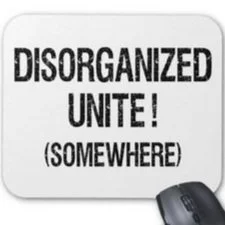
Frequently Asked Questions
“Can I write that off?”
A lot of people think a write off provides a large tax benefit at the end of the year or that they will receive a refund for the money spent. However, these are common misconceptions. A write off is an expense that comes off your bottom line. You don’t get that money back and the tax benefit is minimal. What you get is a deduction from your taxable income. So, for instance, if you have $100 in income and $25 in expenses, the $25 is not just “written off”, it decreases your taxable income to $75. Say the tax rate is 15%, you then owe $11.25 in taxes ($75 x 15%) rather than $15.00 in taxes ($100 x 15%). The $25 expense saves you $3.75 in taxes which means you effectively still spent $21.25.
Be mindful with your business expenses and watch your cashflow. The tax benefit of the expense does not outweigh the cost so ensure that it also benefits your company in other ways (the way business expenses are meant to).
“What do I need for my personal tax return?”
Gathering information for your taxes can be, well…taxing. I suggest designating a file or envelope to place your tax information in during the year when you receive it. If you’re not sure what to include or what you can claim, please check out my “Personal Tax Checklist” for a list of common items.
“Why do I owe taxes?”
The most common reason for people owing taxes is because there simply was not enough income tax deducted during the year. This could be for a number of reasons, however, the main ones that I encounter are explained below:
The number one reason, I find, is that you received income from more than one source and each source only takes out enough income tax based on that one source. For example, Employment Insurance does not take into account the income you received when you went back to work. Therefore, your EI income combined with your employment income puts you in a higher tax bracket than what EI calculated for the income tax deduction. This causes an under-deduction of income taxes from the EI portion of your income.
You received dividends from your business and there are no income taxes deducted from dividends. A dividend is an after-tax income disbursement from your company based on your shareholder ownership. Keep in mind that if you take remuneration in the form of dividends, you will need to pay taxes on this income at the end of the year as opposed to remuneration in the form of payroll where income tax is deducted at source.
You have rental income or self-employment income. These are both forms of income that also do not have income tax deducted at source so you need to be mindful that you will need to pay taxes on this income at the end of the year. Make plans to put a certain percentage aside during the year based on your income level and tax situation.
“How do I organize my business files and what do I need for my fiscal year end?”
I’m combining these two questions because once you have your files organized, you should have everything you need for your fiscal year end. Organization is not for everyone, but keeping your files organized makes it a lot easier to reconcile your accounts and keeps your accounting costs down. Get some file folders or an accordion binder (or even a little organizer to throw in your vehicle when you’re on the go) and file your invoices and receipts throughout the year. Please see the list below of common folders you should create:
Monthly folder for all regular purchase receipts and invoices (larger companies may want to create folder by vendor and customer, while smaller companies could use quarterly folders)
Capital asset purchases (keep separate from the monthly folders and include purchases over $500 for tools, equipment, vehicles, and other individual assets)
Bank statement
Credit card statement
Revenue invoices (if you print them or prepare them manually)
Insurance invoice and policy
Loan agreements and amortization schedules
Workplace NL invoice and statements
Employee and payroll information
HST remittances
Payroll Remittances
Corporate tax notice of assessments
Any other business-related information that requires special identification


